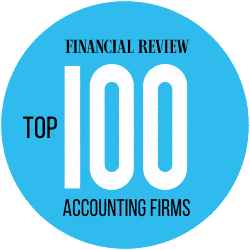One of the earliest and most important decisions facing people wanting to own or run a business is the legal structure they should adopt. Mostly, people will consider three possible options: working as a sole trader, partnership or proprietary limited company.
It may seem simpler to operate just as a sole trader, or self-employed person. Many people choose this option, including those who have retired from full-time jobs to now do part-time work.
Sole traders are their own boss, keep all the profits from the business, and have the least reporting to do to the government.
But the Corporations Law applies to people carrying on a business, not just to companies. Certain documents have to be registered and lodged with the relevant government authorities, whether the business is incorporated or not. Tax returns and annual returns still have to be prepared.
The self-employed person has to pay income tax at the personal rate.
Further, working as a sole trader may mean intrusion into one’s personal privacy, and problems in taking holidays.
Sole trader and partnership structures both have unlimited liability, that is, creditors have access to all the owner-operator’s personal assets.
Company structures on the other hand have the advantage of limited liability, that is, creditors can access only the assets of the business.
Banks often seek a way around limitation of liability by asking for personal guarantees from the owner-managers. But corporate structure still gives the business person the best protection available.
There are tax breaks in running a business through a company structure, too. Under the imputation system of company taxation, company tax gives rise to tax credits, which can be passed on as tax-free benefits to shareholders by paying franked dividends.
Said Martin Artenstein, of Morris Cohen, Glen & Co: “Despite the corporate excesses of the 1980’s, and the new era of heavy regulation under the Corporations Law, companies remain the most popular structure for doing business.
“People by and large feel a higher degree of comfort when dealing with a company, and bankers and financiers prefer them as a vehicle to lend to and invest in,” he said.
Mr. Artenstein pointed out that the company also provides perpetual succession, that is, it has a life of its own that may continue after the founders or present owners have gone.
Its ownership can be spread more widely by issuing shares to shareholders.
Chartered Accountants and other professional advisers become heavily involved in helping people set up companies and then advising and assisting them to operate within the rules.
To begin with, there is the choice between setting up a company from scratch, which can involve a time-consuming bureaucratic process, or taking the quicker course by buying a “shelf” company and injecting the business into it. Shelf companies are already incorporated but inactive. They are available for sale at around $990, Mr. Artenstein said.
Then there is the matter of complying with business regulations. Though varying from state to state, these regulations comprise a large and ever-growing list which may include:
- Registration of a business name
- Registration of premises
- Registration of equipment, such as compressors and lifts
- Health and safety regulations
- Building codes
- Standards
- Consumer protection laws
- Trade Practices Act
- Payroll tax
- Workers compensation or WorkCover
- Long service leave
- Wage awards
- Superannuation Guarantee Levy and other superannuation
- Income, capital gains and fringe benefits taxes
- The prescribed payments system
- Government grants and incentives
Further, Mr Artenstein pointed out, every company has to keep a number of books and registers. These may include a register of directors, main executive officers and company secretaries, minutes of all directors’ and shareholder meetings, accounting records covering the company’s transactions and financial position, and other registers including share, option, debenture, mortgage and substantial shareholder records.
A company’s records have to be kept up to date, give enough information for the directors to manage the business properly, and be in a suitable form to ensure the company’s assets are safeguarded.
Mr. Artenstein said Chartered Accountants are spending a growing part of their time in advising and assisting company owners and managers.
“Studies show that the majority of small businesses that fail do so in their first eighteen months to three years,” he said. “A major cause of failure is inexperienced financial management.
“Companies that use professional financial advice have a better chance of survival.
“Apart from assisting in the formative stages of companies, professional accountants have an ongoing role in advising on sound business practice.
“They can ensure that company officers with all their responsibilities and duties, which are constantly growing in size and complexity.
“They will prepare the accounts and directors’ report, assist in lodgement of various documents with the Australian Securities & Investments Commission (ASIC – formerly the Australian Securities Commission – ASC) each year, and generally help directors and officers of the company meet the ASIC’s requirements.
“They can also report on the financial status of other companies with whom their employers or clients want to do business”.
Mr. Artenstein said that the small to medium sized company, including the family business, was the backbone of the Australian economy and would lead the business revival out of the recession.
He added that for people who had never operated a business, the various state government Small Business Advisory Services provided useful guidance. This initial guidance usually included a suggestion to employ the services of a financial adviser to maintain control of the business once established.
Foreign Companies may set up business in Australia via a Branch (or Foreign) Incorporation – particualarly useful in cases where they choose not to have local officers.Morris Cohen Glen (and Martin Artenstein) specialise in assiting such enterprises,and currenmtly service companies from all around the globe.
Important: This is not advice. Clients should not act solely on the basis of the material contained in this bulletin. Items herein are general comments only and do not constitute or convey advice per se. Also changes in legislation may occur quickly. We therefore recommend that our formal advice be sought before acting in any of these areas. The bulletin is issued as a helpful guide to clients and for their private information. Therefore it should be regarded as confidential and not be made available to any person without our prior approval.




